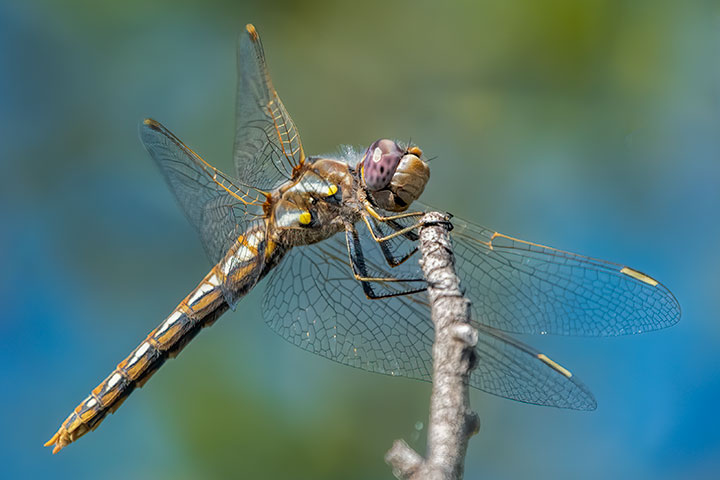When we think of local migrants, we usually think of birds. Indeed, many of the birds we watch most assiduously, migrate in and out our region. But…, migrating insects?
Most local insects spend their whole lives within kilometres of where they were hatched. But, a handful do not. Of our many locally-seen butterflies, there are only three migrants. But, the migrating insect seen this morning wasn’t a butterfly; it was a dragonfly, one of only two local migrants: it is the variegated meadowhawk.
Its name, variegated, — exhibiting different colours, especially as irregular patches or streaks — certainly characterizes it. Indeed, the males even shift to reddish as they age. Yet throughout these variations, all display two yellow dots on each side of the thorax.
I could learn little about its range, although it seems that this one will have originated a bit to our north and may well migrate as far south as Central America. But, unlike birds where the same individual migrates both ways, these dragonflies split their round trip across at least two generations — itself a neat trick.
A striking looking migrating dragonfly, this variegated meadowhawk is on its southward journey.


So interesting — to learn of migratory dragonflies/meadowhawks. I saw my first M. last week, it was red all over, even its face. Do you know why they’re called “meadowhawks”? The one I saw was doing something with its toes on a gentian bud…
Sarah, I suspect that they gained the name because they spend their time in meadows hawking other insects.
I thought that insects had a short lifespan, certainly not long enough to migrate. Very interesting, I’m enlightened once more. Thank you Alistair
Birthe, maybe the short lifespan is the reason they have to split their migrations over multiple generations.